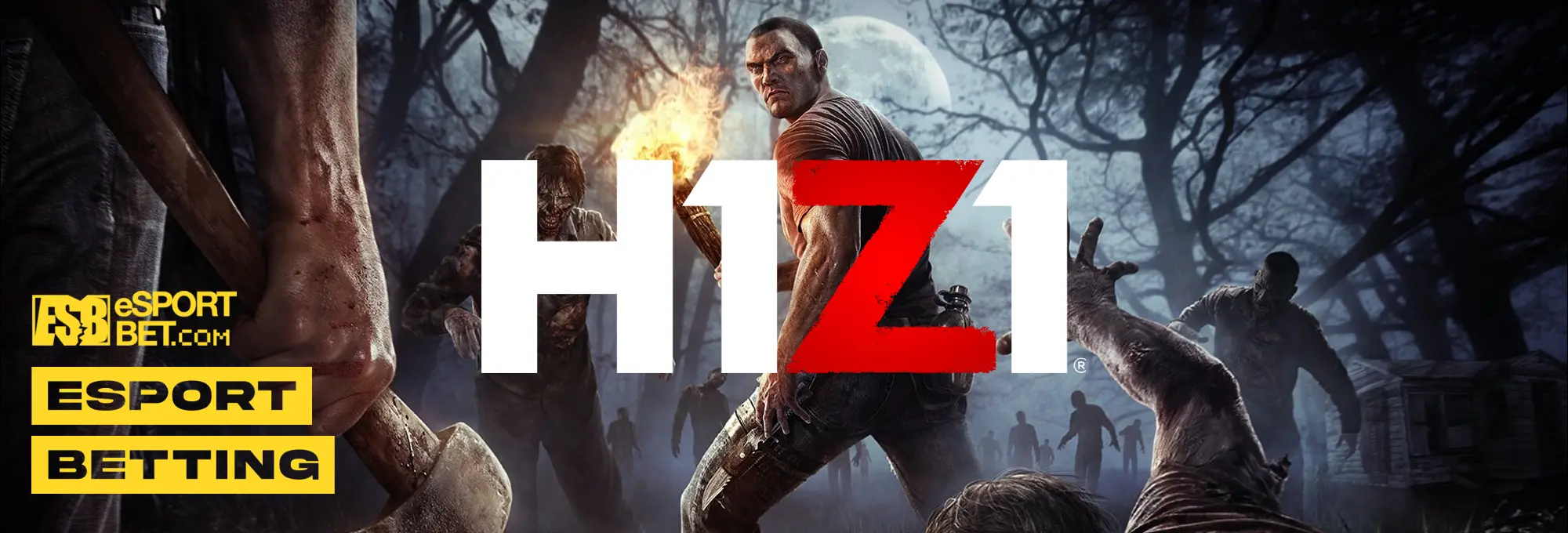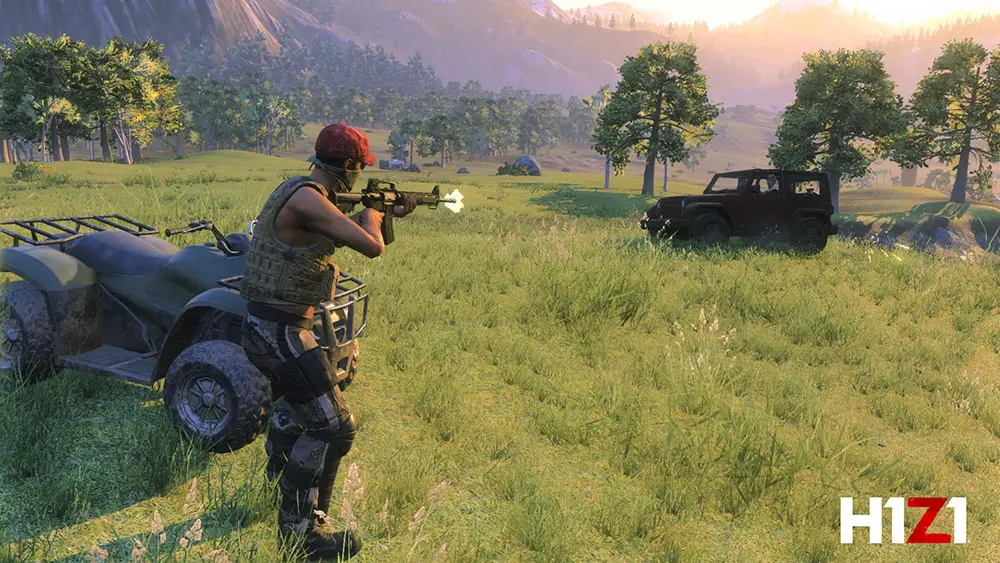
H1Z1 is a multiplayer online battle royale game that first entered public Alpha on January 15, 2015, and was officially released on February 28, 2018. Developed by Daybreak Game Company, H1Z1 initially gained popularity as a gritty zombie survival experience, where players were dropped into an open-world environment and had to fight off both the undead and rival survivors to stay alive.
The game’s turning point came when Daybreak brought in Brandon “PlayerUnknown” Greene—known for his influential Battle Royale mod for Arma 3—to develop a competitive survival mode. Under Greene’s leadership, the game split into two versions: the original survival-based H1Z1, and the battle royale-focused H1Z1: King of the Kill. It was the latter that would define the franchise, becoming a trailblazer in the emerging battle royale genre.
Before Fortnite or Player Unknown’s Battle Ground became household names, H1Z1: King of the Kill laid the groundwork for fast-paced, last-man-standing competition. Its influence was undeniable, helping to shape the core mechanics that now dominate games across the esports world. From randomized weapon drops to shrinking safe zones, H1Z1 helped establish many of the features now standard in modern competitive shooters.
However, as of 2025, H1Z1’s competitive scene has faded from prominence. The H1Z1 Pro League, launched in 2018 with the ambition to create a premier battle royale esports circuit, folded within months due to financial challenges and organizational instability. Since then, official tournaments have ceased, and the once-buzzing competitive community has largely moved on.
Despite its fall from the esports spotlight, H1Z1 still maintains a small but loyal player base through its rebranded version, Z1 Battle Royale. Community-driven events and occasional online matchups continue, but the franchise is now widely regarded as a legacy title—honored more for its historical impact than its present-day competition.
Our top betting sites are:
Terms & Conditions Apply. Visit BetOnline for more information.
The bookies' bookie
$250 in Free Bets and 100 Free Spins with first deposit of minimum $50. Full terms
How the game is played
Players parachute into the map from random locations and as they land they must find supplies to defend themselves. Hiding and waiting is not an option as a toxic gas advances, thus reducing the safe zone. Eventually the remaining players will have to meet and fight.
There are several objects available for the players to grab, like weapons and medical kits. Vehicles and the possibility of building weapons are some of the innovations on H1Z1.
The game can be played in a solo mode, duo mode & squad mode, Squad mode seems to be the choice of the competitive structure however H1Z1 has also had success using the solo queue structure.

Esports in H1Z1
At its competitive peak, H1Z1 delivered a glimpse of its esports potential through high-profile tournaments and large-scale prize pools. One of the most notable events was the $250,000 USD tournament held at DreamHack Winter in Sweden from December 1–3. The event attracted elite teams from across the globe and saw Impact Gaming, Counter Logic Gaming, and Method claim the top three spots, in a thrilling showcase of high-skill battle royale action.
Beyond DreamHack, H1Z1 gained major traction through its annual H1Z1 Invitational tournaments at TwitchCon. These fan-favorite competitions featured enormous prize pools—most notably a $500,000 USD pool in one of its final years. A standout attraction was the All-Stars Game, where $200,000 was distributed among 75 of the most popular Twitch streamers, including personalities like DrDisRespect and SodaPoppin, who competed not just for money, but also for community bragging rights and exposure.
These events helped H1Z1 carve out a moment in esports history, bringing professional players, influencers, and fans together around a game that was once the genre’s leading innovator. Though the esports scene has since gone quiet, the excitement and energy of those tournaments remain part of the legacy that H1Z1 leaves behind.
H1Z1 Pro League
In 2018, the team at Daybreak Game Company made a bold push to cement H1Z1 as the leading competitive battle royale title with the launch of the H1Z1 Pro League (H1PL). Unveiled with great fanfare, the league was positioned as a revolutionary step forward for battle royale esports—a space that, at the time, was still rapidly evolving.
The league kicked off on April 21, 2018, from the Caesars Entertainment Studios in Las Vegas. Each season was structured into two 10-week splits, with matches broadcast live via the official H1Z1 Facebook page. The production value, accessibility, and regular broadcast schedule were aimed at creating a consistent and professional platform that could rival traditional esports leagues.
What truly set the H1PL apart was its player-first model. It promised minimum player salaries, franchise team profit-sharing, and long-term stability—features that were virtually unheard of in battle royale esports at the time. Daybreak pitched the league as a permanent home for fans and players, designed to deliver “the most exciting battle royale competition esports has ever seen.”
Despite the ambitious goals, the H1Z1 Pro League faced significant logistical and financial challenges. It folded later that same year after just one split, citing low viewership, mismanagement, and unresolved contractual issues. Though short-lived, the league remains a notable milestone in the history of battle royale esports—a glimpse at what could have been, had the genre’s early momentum been sustained under a single competitive structure.
Betting on H1Z1
At the time of its launch, no formal betting markets had been confirmed for the H1Z1 Pro League, but expectations were high. Given the growing popularity of esports wagering and the explosive rise of battle royale games, industry observers widely believed that betting opportunities would soon follow. As the first game to establish a structured, ongoing battle royale league, H1Z1 seemed poised to capitalize on this momentum.
Many anticipated that leading sportsbooks would introduce odds on team matchups, tournament winners, and even individual player performance. With household esports names like CLG and Method involved, the league had all the ingredients for a strong betting ecosystem. Unfortunately, the league’s short lifespan meant these markets never fully materialized.
In hindsight, the absence of formal betting options represents a missed opportunity—not only for bookmakers, but also for fans looking to engage with H1Z1 on a deeper, more interactive level. As battle royale betting found a home with titles like PUBG, Apex Legends, and Fortnite, H1Z1 quietly faded from the esports wagering conversation.
Our top betting sites are:
Terms & Conditions Apply. Visit BetOnline for more information.
The bookies' bookie
$250 in Free Bets and 100 Free Spins with first deposit of minimum $50. Full terms
See also:



